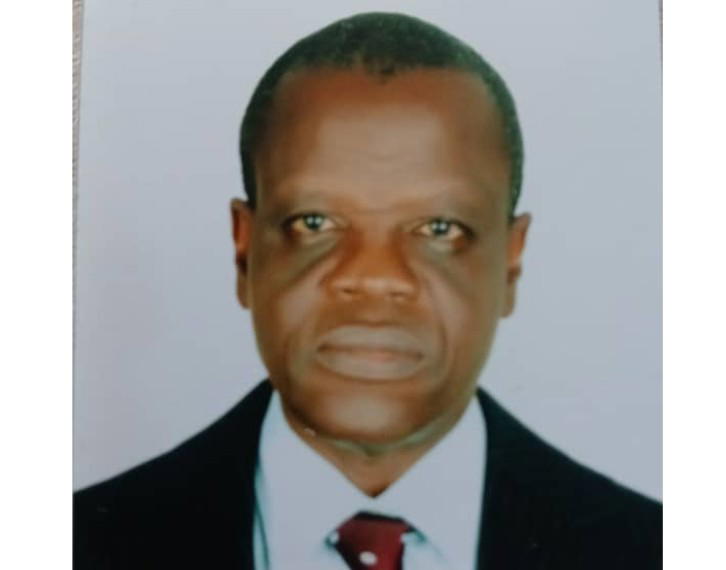Why Tinubu is forgetful of Southeast, South-South, by Emmanuel Aziken

When, in the near future, political and other stakeholders from the Southeast gather to review the fate of the region in Nigeria’s geopolitical balance, many eyes will turn to Rt. Hon. Benjamin Kalu for explanations.
As Deputy Speaker of the House of Representatives, Kalu is today the highest-ranking political officer from the Southeast, a position that confers both visibility and responsibility. Yet his gestures of “renewed hope” have, in the eyes of many, coincided with the systematic marginalisation of his Southeast brothers and sisters from the commanding heights of government.
Kalu stands even above his former political benefactor, Senator Orji Uzor Kalu, whose ill-fated dalliance with the Ahmad Lawan presidential project before the 2022 APC presidential primaries left him politically diminished. Once a powerful figurein Southeast politics, Orji Kalu has since resorted to desperate attempts to catch President Tinubu’s attention — from repeated media cries to recently adorning Tinubu 2027 regalia in a bid to reinvent himself as a loyal convert.
But Orji Kalu was not alone. Many Igbo leaders distanced themselves from Tinubu in 2023, swept away by the Obidient phenomenon that, for the first time in the Fourth Republic, gave the Southeast a viable homegrown presidential candidate.
They were, however, warned of the consequences. At a campaign rally in Enugu in January 2023, Tinubu famously threatened that the region would be left to “eat bread soaked in water” if it failed to support him.
With policies and appointments so far, many now fear that the Southeast is suffering worse than even that grim promise.
Silence of the Leaders
Remarkably, most political leaders from the region have chosen silence in the face of neglect. Only Lauretta Onochie, ironically from the South-South, has openly raised the alarm over the marginalisation of the East. Her most recent salvo came after Tinubu extended the tenure of Comptroller-General of Customs, Adewale Adeniyi. That move cut short the ambition of DCG B.U. Nwafor, an Anambra-born officer who stood a strong chance of becoming the first female CG of Customs.
Yet the Southeast is not alone. The South-South — the region that produces Nigeria’soil wealth — has suffered a similar fate. The difference is that the Southeast is not just an economic contributor but also one of Nigeria’s three major ethnic poles. In contrast, the Tinubu government has concentrated its patronage almost exclusively on the North and the Southwest.
When on July 18 the President made nine appointments — eight from the North and one from the Southwest — the message could not have been clearer: the Southeast and South-South do not matter in the administration’s scheme of things, no matter the loyal gestures of Benjamin Kalu or others from the oil-producing belt.
The Bread and Water Logic
The logic of this neglect, insiders argue, is simple: the Southeast and South-South gave Tinubu the least votes in 2023. From that perspective, starving them of appointments is political retribution. Ironically, with anger reportedly rising in the North over Tinubu’s governance style, one would have expected him to seek balance by drawing the Southeast and South-South closer. Instead, the government has doubled down on their exclusion.
Why then does Benjamin Kalu, despite all this, boldly promise Tinubu 70% of Southeast votes in 2027? The answer may lie in the administration’s high-voltage political engineering. By hook or by crook, Tinubu’s strategists appear to have secured key Southeast and South-South leaders for the next electoral cycle, regardless of what their people think.
South-South Alignments
In Akwa Ibom, Senate President Godswill Akpabio and Governor Umo Eno are expected to deliver for Tinubu. For Akpabio, success in this task could strengthen his case for a second term as Senate President. Yet, he faces a rival in Comrade Adams Oshiomhole, who, working with Governor Monday Okpebholo has boldly projected 2.5 million votes for Tinubu in Edo — a staggering claim, given that Okpebholo himself won just 291,000 votes in his own governorship race. Such projections raise suspicions of “technical sophistication and glitches” being prepared for 2027.
In Rivers, the elevation of Nyesom Wike above all other actors makes it almost certain that Tinubu will repeat his 2023 victory in the state. With Wike firmly in charge, Rivers appears locked in.
Southeast, South-South in the Bag?
Whatever traction Peter Obi or other opposition figures may generate in the media ahead of 2027, the reality is that much of the Southeast, with the active connivance of leaders like Benjamin Kalu, could still be delivered to Tinubu — perhaps with the promised 70% — thanks to the “techniques” already being tested.
The unanswered question, however, remains: how will Benjamin Kalu explain to his people, when the dust settles, that under his watch as their highest-ranking officer, they were stripped of meaningful appointments while he preached “renewed hope”?
The Real Battleground: The North
While Tinubu’s strategists are confident about delivering the South-South and Southeast, they remain wary of the North. Unlike the South, the North is known for its capacity to defend its votes. This is why, despite public disenchantment, the Tinubu camp continues to appease the North while treating the South-South and Southeast with calculated neglect.
For Benjamin Kalu and other Igbo leaders, chorusing renewed hope today, history will judge whether loyalty to Tinubu was political pragmatism or betrayal.
The post Why Tinubu is forgetful of Southeast, South-South, by Emmanuel Aziken appeared first on Vanguard News.







